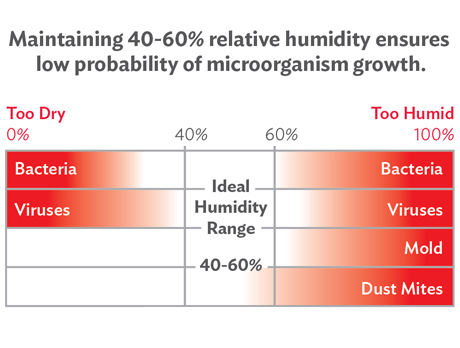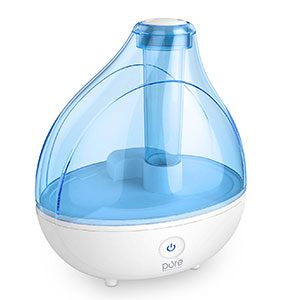- Home
- Instruments
- Gear
- Recording
- Lessons
- Reviews
- Blog

Air humidity is by far one of the most dangerous silent killers of guitars that not many people even think about. Let's put things in simple terms. Guitars are made of wood and as such react to the environment they are in. Humidity is just one of factors that can cause the wood in a guitar to deform. The extent of damage humidity can cause varies depending on the amount of humidity. In extreme cases, a guitar can become completely unplayable.
However, it's unnoticeable damage that is by far the most dangerous. If you store your guitar in a place which is either too dry or too humid, that guitar will slowly start to react. This reaction is often subtle, and the only way to notice it is to do a proper check of the instrument. Not many people do this, at least not often enough. Humidity reacts differently to various types of guitars. For example, an electric guitar won't suffer as much from humidity as an acoustic guitar will. With that said, any guitar is at risk. Today we are going to talk about humidity, learn what is the ideal humidity for guitars and how to achieve it.

Humidity causes different problems depending on its current levels. You don't want your guitar to be stored in a place that is too humid, but you also don't want to store your guitar in a place that is too dry. A perfect value is somewhere in between. The general consensus is that 40-50 percent humidity is optimal.
What this means is that when you achieve those levels of humidity, your guitar will play and sound as it was designed to. Once you start moving away from that value, you will slowly begin to experience different problems. For example, if you go down to 35 percent humidity, you will notice a change in string height and your frets will feel sharp.
On the other hand, if you go upwards on this scale, the guitar (especially acoustic guitars) will begin to slowly bloat. That is only 5-10 percent change in humidity. Imagine what can happen if you go to more extreme values.
Although acoustic guitars are more prone to the effects of humidity, electric ones are at risk as well. If you think about it, a lot of guitar players just hang their guitars on the wall or keep them laying somewhere in the room. A year or two will pass, and there may not be any significant damage. However, chances are that if you took that guitar to a shop, they would spot some kind of deformation. One of the most affected parts of electric guitars when it comes to humidity is definitely the neck.
Neck of an electric guitar, or electric bass guitar is constantly under tension. It's fighting back against the strings, which is why there is a truss rod running through it, which helps it retain its form. However, even a truss rod isn't enough if the neck starts to give due to too much, or not enough humidity.
By the time the damage is done, you can't really reverse this process in most cases. In short, every guitar regardless of the type should be stored in an area that has optimal humidity values. Now that we know what the ideal humidity is for storing guitars, let's talk about how to achieve this.
 To influence humidity you will need a humidifier of some sort. This is a device that regulates the levels of humidity and allows you maintain the ideal values at all times. If you are wondering why you should get a humidifier, check out this article ‘4 Benefits of Using a Guitar Humidifier' . There are three most popular types of humidifiers currently available, each giving you a different kind of results.
To influence humidity you will need a humidifier of some sort. This is a device that regulates the levels of humidity and allows you maintain the ideal values at all times. If you are wondering why you should get a humidifier, check out this article ‘4 Benefits of Using a Guitar Humidifier' . There are three most popular types of humidifiers currently available, each giving you a different kind of results.
First one is a room humidifier. This device alters the humidity of the whole room and is generally not the best solution unless you have a dedicated room where you store all your instruments. A more localized way of keeping optimal levels of humidity is to use sound hole humidifiers.
These devices are inserted into the sound hole of acoustic guitars and deliver the optimal levels of humidity. Last and probably the most effective type are guitar case humidifiers. These are inserted into the case, and usually work the best because they control a very defined space. Almost every humidifier will need to be watered. You generally add water every 2 to 3 days.
Some modern humidifiers can detect when the humidity is going below but also above optimal values. These then regulate the environment by either adding more humidity or removing the excess until the targeted levels are reached. Either way, it's best to use a hygrometer in combination with a humidifier. This is a simple device that measures humidity, which allows you to always maintain optimal levels.
Dealing with humidity is something you need to include into your guitar maintenance routine no matter what kind of guitar you own. This is one of the most overlooked causes of ruined guitars, and one that you can easily prevent.
If you want to preserve your guitars, especially the more expensive ones, a humidifier is not only a good investment, but it's something you simply need to have. In a nutshell, the proper way of keeping your instruments in top shape is to keep the humidity at an optimal level.
And if you want to see the best items this niche can offer, check out our list of Best Guitar Humidifiers.

Robert Russo says
I’m finishing my base and fortunately have a very dry one – relatively speaking- my hygrometer reads 58 to 59% humidity with nothing done to affect things. I don’t get water down there either. I’d like to creat a space where I can hang my guitars, much like the acoustic string instrument room at say a Guitar Center. I have a dehumidifier but haven’t started using it or putting guitars there yet. Any tip on how to best make this space acceptable for guitars?